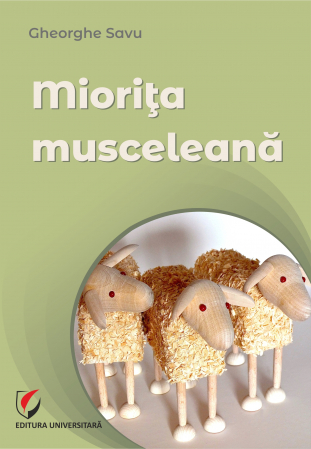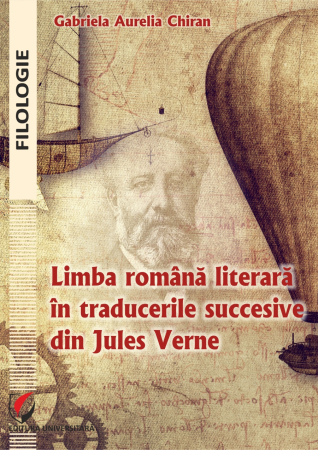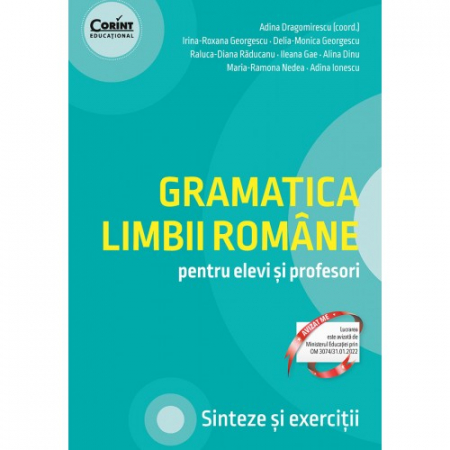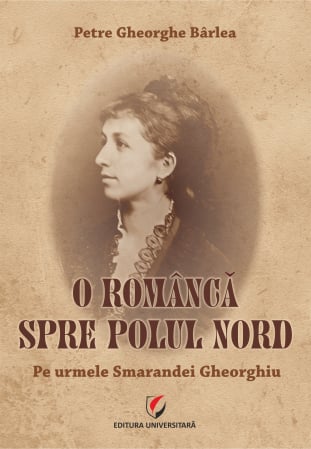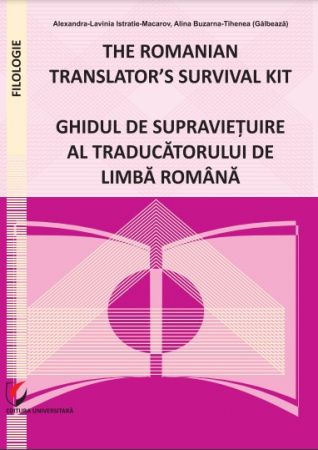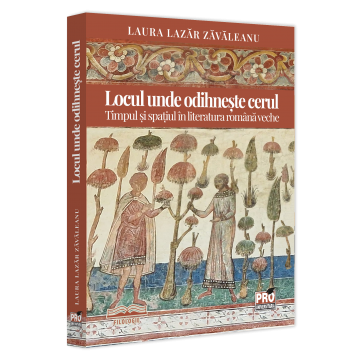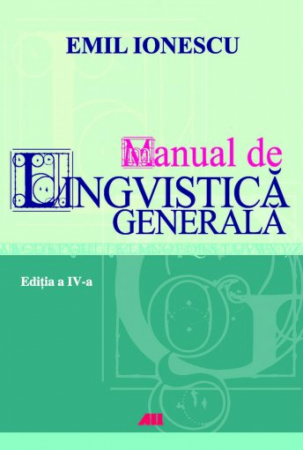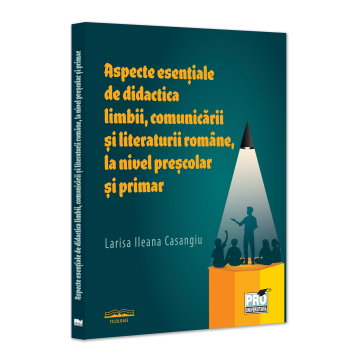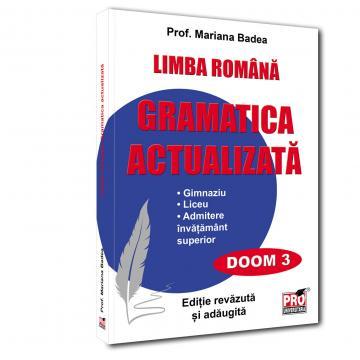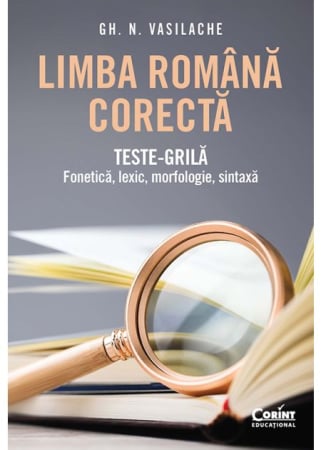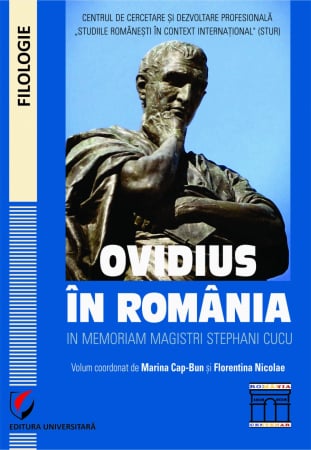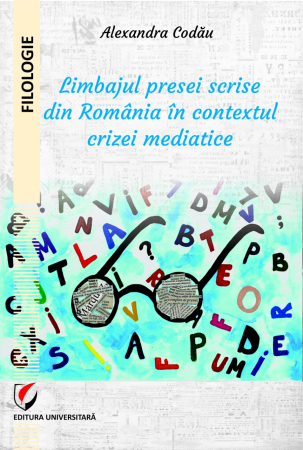ISBN: 978-606-28-1151-8
DOI: https://doi.org/10.5682/9786062811518
Publisher year: 2020
Edition: I
Pages: 196
Publisher: Editura Universitară
Author: Elena Trache
- Description
- Download (1)
- Authors
- Content
- More details
- Reviews (0)
This paper is the research dedicated to the chronotope of the road in Romanian literature. The road is not only a spatial category, but also a mythical-literary concept enshrined in literary works. The investigation perspective operates with the road as a spatial and temporal organism, capitalizing on its narratological areas.
The project aims to illustrate the literary transformation of the Road, based on the aesthetics and mythology of the Romanian space. Proving the durability of the road chronotopy is achievable through the exercise of identifying the Road with a space of initiation, travel, search for the center, built on the original myth, that of descent, rebirth, nostalgia, etc.
The symbolism of the Road - space-center - is characterized by sky, circle, forest (urban space), labyrinth (initiation space) or through the primordial elements (phenomenological): water, fire, air and earth to which history corresponds (age, memory ), name, faith and people (race, nation). Just as the universe cannot exist without its primordial elements, so a people cannot fortify its identity without a proper name, without a defining faith or history of its own. The road, the center of existence, is projected on a spatial-temporal axis.
In clarifying the phenomenon of road chronotopy, the potentials of the imaginary and identity architecture of the Road are analyzed, as it outlines the valences of the center. The applied model starts from considering the road to be a symbol of the reflection of the road-character, of the road-decoration, of the road-book, etc. Conceptually and methodologically, the work is presented through the mythopoetic and multidisciplinary interpretation of the Road, valid also for other chronotopes from the universal literature. The mythopoetic representations about the road were also capitalized by modern thinking, so that they determine the character of the chronotope and establish the type of texts (adventure novel, Bildungsroman, autobiographical or chivalrous novel, etc.) and their protagonist.
The structure of the paper highlights a theoretical part and a literary research part. The theoretical part revealed in the first chapter of the paper consists of information from literary theory, which we tried to crystallize into a coherent vision. The analysis was extensive, assuming an unusual interpretation of the chronotope through the prism of narratology, hence the concept of narrative chronotopia. The selection of the corpus of texts was constituted during the research of the concept of narrative chronotopy of the road, not according to the authors and does not propose a chronological perspective on the Romanian prose.
The present paper aims to open the possibility of detaching some solutions for examining the Romanian prose capable of stimulating the approach of other aspects, such as the establishment of paradigms in Romanian literature and according to the chronotopic forms.
-
A Literary Chronotope, the Road
Download
ELENA TRACHE is a teacher of Romanian language and literature at L.T. "Lucian Blaga" Constanta; defended his doctoral thesis in 2010 at the University "Ovidius" Constanta with the theme Un cronotop literar – drumul; she attended the courses of Advanced Studies in 1999, with a dissertation exam at the "Ovidius" University of Constanta; is a member of the National Body of Experts in Educational Management since 2012; published works in the field of research and education - Memento Lucian Blaga, Estfalia Publishing House, Bucharest, 2012; Lucian Blaga – interpretari, Estfalia Publishing House, Bucharest, 2012; Nuvela – ucenicie a romancierului roman, Estfalia Publishing House, Bucharest, 2009; Limba si literatura romana. Tehnica ciorchinelui/ Ghid de studiu. Aplicatii pentru limba si literatura romana - gimnaziu (Abordare didactica), Arves Publishing House, Craiova, 2009; Limba si literatura romana. Tehnica ciorchinelui/ Ghid de studiu. Aplicatii pentru limba si literatura romana liceu (Abordare didactica), Arves Publishing House, Craiova, 2009; Ghidul de studiu al literaturii romane pentru bacalaureat, Muntenia Publishing House, Constanta, 2005.
I PREAMBLE: TERMINOLOGICAL CLARIFICATIONS / 10
1 From the narratological categories of the text: theme / motive / character / 10
2 Time / space, temporality / spatiality / 15
3 What is a chronotope? / 18
4 The road - a literary chronotope. Definitions and etymology / 21
A traffic chronotope - the road (short diachrony) / 27
II FORMS AND VALUES OF THE ROAD CHRONOTOPE / 31
The tourist road - pleasure trip, from itinerary, tourist guide to “pleasure train” (Vasile Alecsandri, I.L. Caragiale) / 31
The picaresque road (Vasile Alecsandri) / 47
Hunting - a pretext for the essayistic approach (Al. I. Odobescu) / 51
The road of magical hunting (Vasile Voiculescu) / 57
The road of adventure (Radu Tudoran, Jean Bart) / 69
Symbolist nostalgia (Alexandru Macedonski, Ion Minulescu) / 77
The popular Weltanschauung: the fairy tale / 85
The road between initiation and myth - in the Sadovian novel / 94
The road of the “choir” (Liviu Rebreanu) / 103
The road of “memory” (Ion Creanga) / 113
The road - the adventure of consciousness (Marin Preda) / 122
Emblems in the slum space (Mateiu I. Caragiale) / 128
"The roads of time and space" archaic (Mihai Eminescu) / 134
Utopia and dystopia (Ioan Budai-Deleanu, A.E. Baconsky, Bujor Nedelcovici) / 139
Unconventional roads: comics / 151
CONCLUSIONS / 157
BIBLIOGRAPHY / 180
INDEX OF TERMS / 195
In clarifying the phenomenon of road chronotopy, the potentials of the imaginary and identity architecture of the Road are analyzed, as it outlines the valences of the center. The applied model starts from considering the road to be a symbol of the reflection of the road-character, of the road-decoration, of the road-book, etc. Conceptually and methodologically, the work is presented through the mythopoetic and multidisciplinary interpretation of the Road, valid also for other chronotopes from the universal literature. The mythopoetic representations about the road were also capitalized by modern thinking, so that they determine the character of the chronotope and establish the type of texts (adventure novel, Bildungsroman, autobiographical or chivalrous novel, etc.) and their protagonist.
The structure of the paper highlights a theoretical part and a literary research part. The theoretical part revealed in the first chapter of the paper consists of information from literary theory, which we tried to crystallize into a coherent vision. The analysis was extensive, assuming an unusual interpretation of the chronotope through the prism of narratology, hence the concept of narrative chronotopia. The selection of the corpus of texts was constituted during the research of the concept of narrative chronotopy of the road, not according to the authors and does not propose a chronological perspective on the Romanian prose.
Bibliographic resources reflect our concern for the widest possible documentation. Specialized works were consulted - literary theory and criticism, studies and articles, dictionaries, works from the corpus of texts selected from Romanian literature. The diversity of documentation sources reveals the need to provide minimal scientific support.
The innovative character of the research consists in the novelty of the perspective of approaching prose through the prism of the categories of narrative chronotopia for the term road. The scientific-innovative character is outlined by the intention to give a systemic, narratological interpretation, of capitalization of the determined categories of the Romanian prose. The syncretic character of the prose, its narrative dimensions, the temporal and spatial categories, the intertextual relations, the imaginary worlds and the types of characters, the narrative strategies and techniques are highlighted. The research of narrative chronotopia in prose was revealed in literary criticism in the study dedicated to this issue by Mihail Bahtin, a work that was the basis for the conceptual definition and the system of terms used. The consulted bibliographic material fully justified the option for the topic by references that attest to the existence of chronotopy in prose. It is made up of specific categories, but overall it is a difficult phenomenon to conceptualize. From this point of view, the research presents the analysis of the interference between the temporal and spatial category at the textual level.
Key research terms: Opera / text / narrative discourse, narrative textual organization, textual coordinates: time / space, theme / motive, chronotope, narrative chronotopy, character, narratological approach - time / temporality, space / spatiality, categories of narrative chronotopy - the road - tourist itinerary, the silk road, the initiatory road, the road - introspection or self-knowledge, the road as a narrative, the road - social topos, etc.
The approach of theoretical research brings together some of the concepts of time, space, temporality, spatiality, chronotopy. In order to frame as clearly as possible the territory of the narrative chronotopia in which there are representations of the road chronotope, we consulted the works of some authors concerned with this issue, among which we mention: theorists Mihail Bahtin, Boris Tomasevski, Wolfgang Kayser, modern poetic works of linguists and structuralists. - Tzvetan Todorov, Gérard Genette, Oswald Ducrot, Gaston Bachelard, Maurice Blanchot, Alain Montandon, Valeriu Cristea, Adrian Marino, Gabriela Duda etc. Extremely useful in learning the research methodology, especially in Chapter II were the works of E. Lovinescu, Serban Cioculescu, G. Calinescu, G. Ibraileanu, Eugen Simion, Nicolae Manolescu, Constantin Ciopraga, M. Anghelescu, Nicolae Rotund, Henri Zalis, Dumitru Tiutiuca, Mihaela Mancas, Sorin Vintila, Dimitrie Pacurariu, Doina Comolosan, Alina Pamfil etc. The research of various theoretical studies on time, space and chronotope has allowed the formulation of aspects to reproduce the inclusion in a system with different features of the term road and narrative chronotopia by reference to the narrative text.
Starting from the presentation of the genre features, the first chapter - PREAMBLE: TERMINOLOGICAL CLARIFICATIONS - will review the definitions and a possible framing of the narrative chronotopia, aspects of temporality and spatiality and will reveal diachronic elements of the Romanian chronotope concept - the road.
The second chapter - FORMS AND VALUES OF THE ROAD CHRONOTOPE - offers by etymological approach corroborated with the hermeneutics of meaning the first meanings, thus the following concepts were identified regarding the categories of narrative chronotopia - the tourist road, the picaresque road, the essay approach, the magic hunting road, symbolist nostalgia, the popular Weltanschauung: the fairy tale, the road between initiation and myth, the road of "chorus", the road of memory, the road - adventure of consciousness, emblems in the slum space, the archaic "paths of time and space", utopia and dystopia, unconventional roads : comics. The analytical approach gives the indications of the narrative chronotopia in prose, through narratological sources, but also by defining the concept of the chronotope of the road in Romanian literary criticism being delimited certain paradigms from the perspective of joining or not Romanian literature to this discursive form. Relying on a body of text comprising writers from the Pasoptist period to the postmodern era such as Vasile Alecsandri, I.L. Caragiale, Radu Tudoran, Jean Bart, Al. Macedonski, Ion Minulescu, Mihail Sadoveanu, Liviu Rebreanu, Marin Preda, Al.I. Odobescu, Vasile Voiculescu, Ion Creanga, Mateiu I. Caragiale, Mihai Eminescu, Ioan Budai-Deleanu, A.E. Baconsky, Bujor Nedelcovici, Gellu Naum, the second part of the paper highlighted certain defining features of the narrative chronotopy of the road in Romanian prose, in an itinerary including the Romanian writings that fall into this system. This narratological research on the aspects of prose chronotopia - essential categories, defines a series of characteristics that return in the composition of the research system. The present paper aims to open the possibility of detaching some solutions for examining the Romanian prose capable of stimulating the approach of other aspects, such as the establishment of paradigms in Romanian literature and according to the chronotopic forms.

6359.png)
![A Literary Chronotope, the Road [1] A Literary Chronotope, the Road [1]](https://gomagcdn.ro/domains/editurauniversitara.ro/files/product/large/Trache-Elena_Un-cronotop-literar,-drumul_BT.jpg-2967-2215.jpg)
